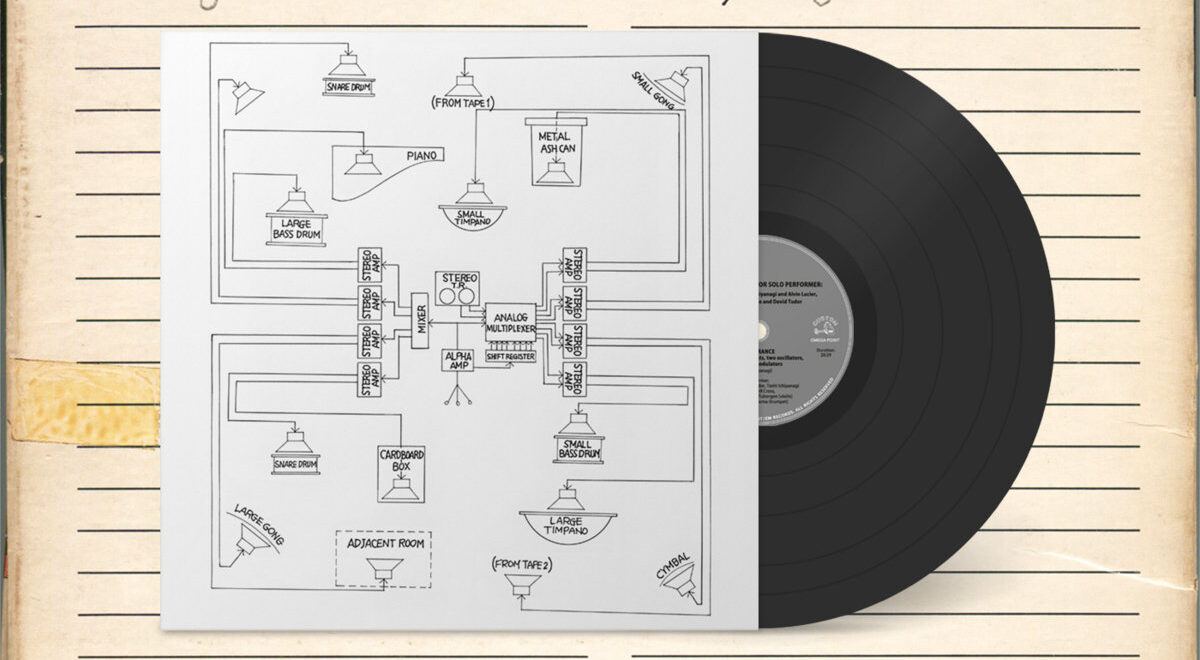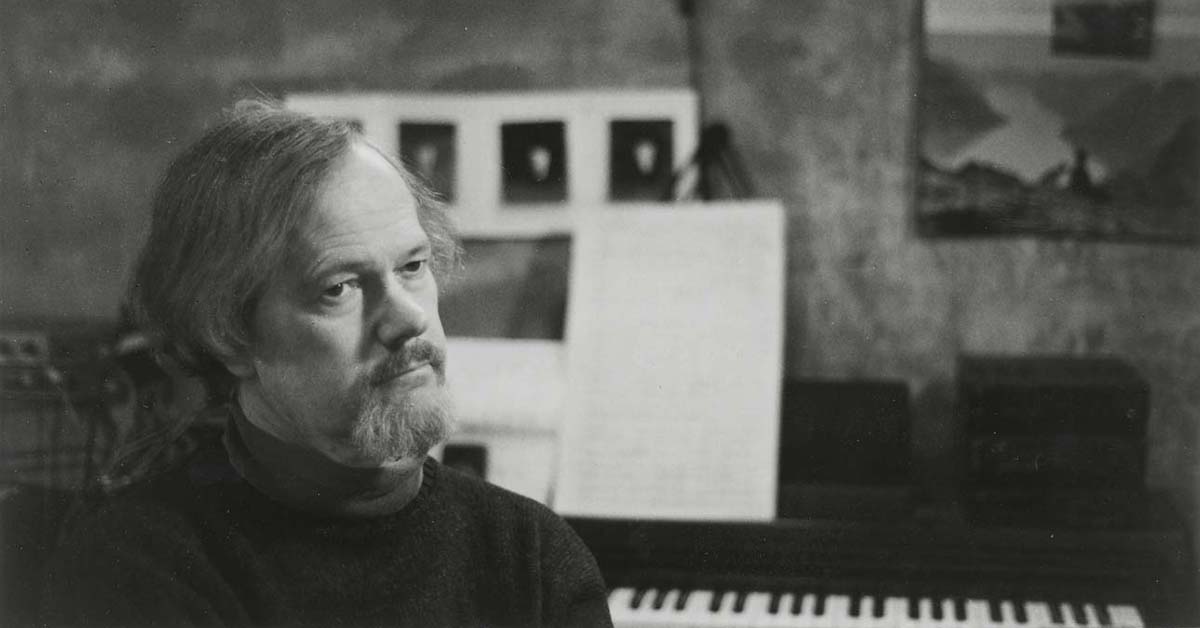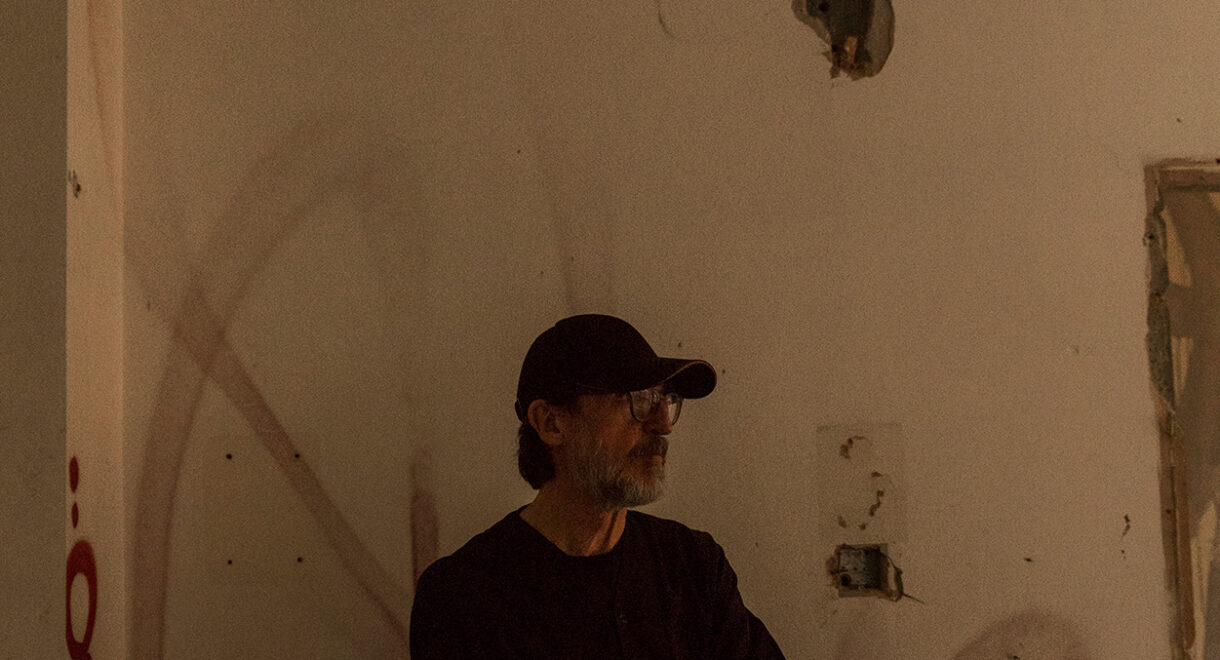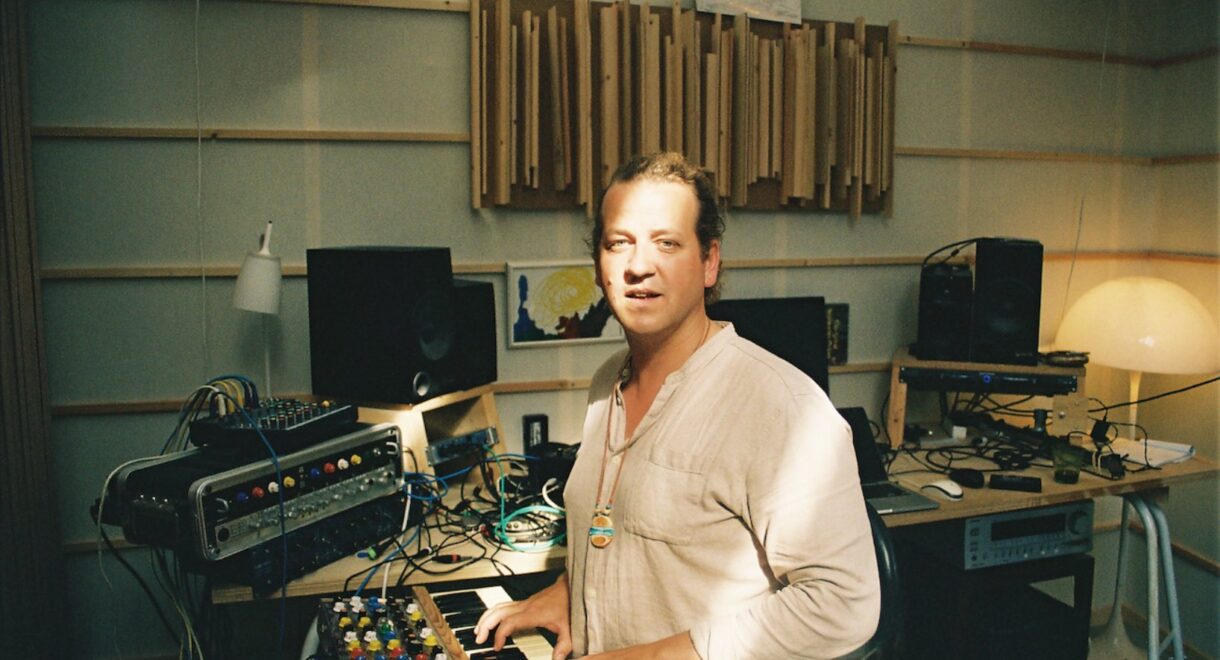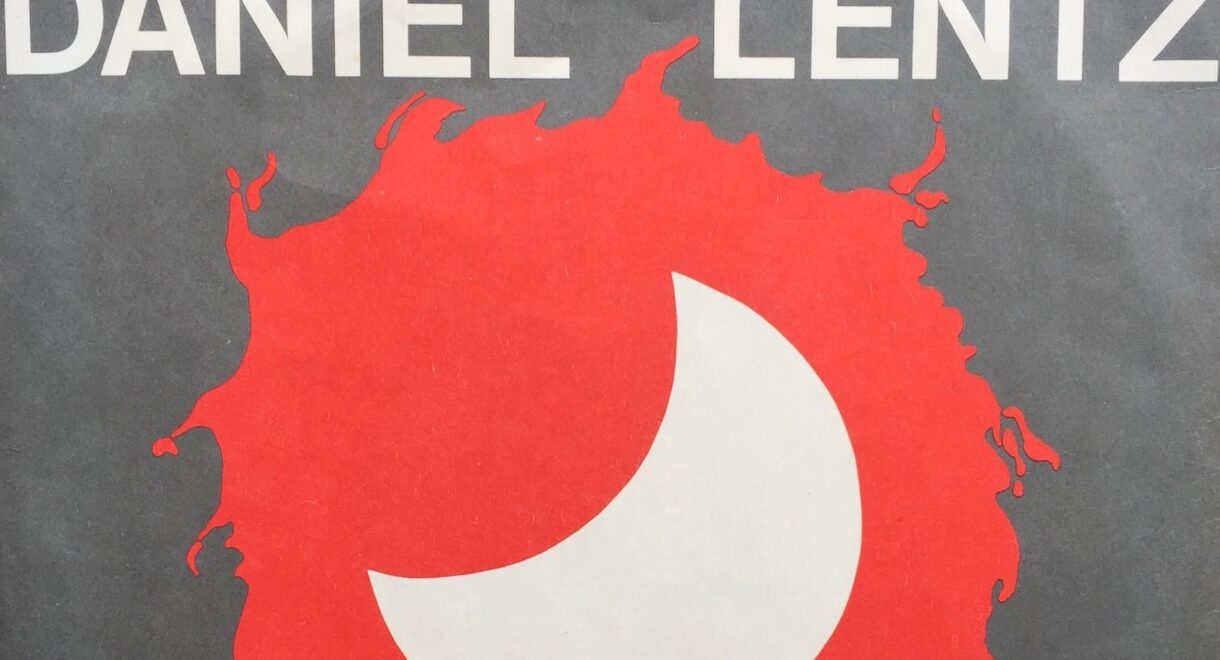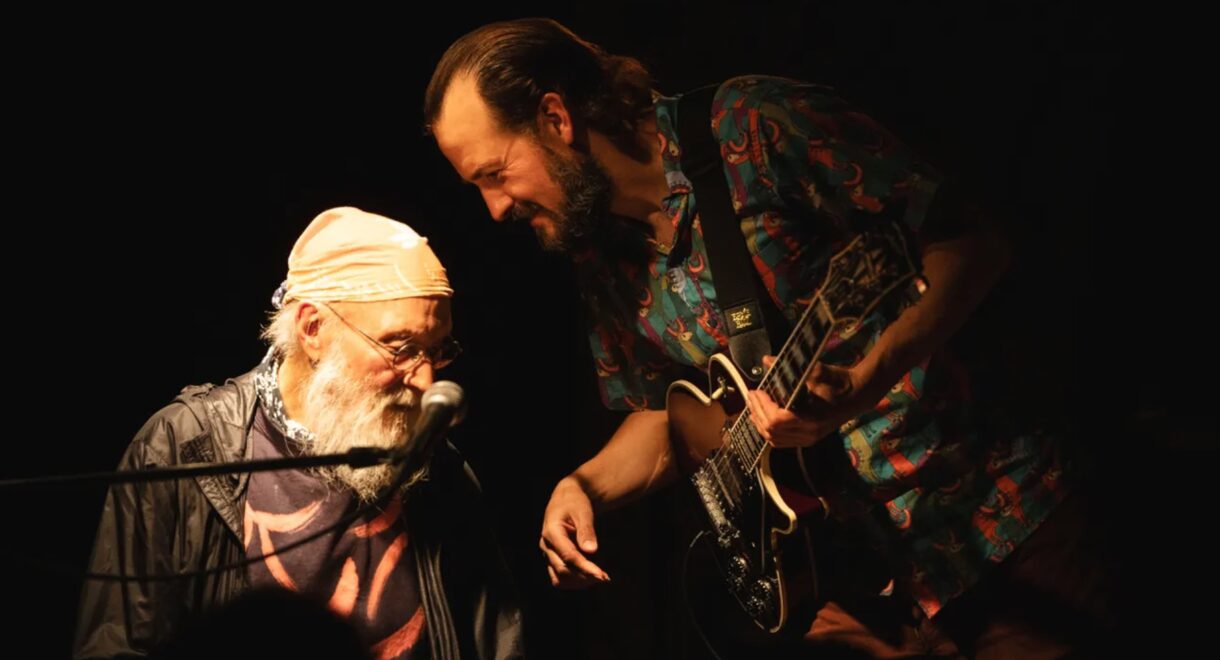EM Records has rescued a lost 1967 performance of Lucier’s Music for Solo Performer, featuring Cage, David Tudor and Toshi Ichiyanagi. Available for pre-order from In Sheep’s Clothing. […]
Under the Full Moon: Revisiting Terry Riley’s 1977 Shri Camel and Celebrating His 90th at the Ford

In celebration of the composer at ninety, we re-up his 1977 Holland Festival video and gather at JACCC for Cosmic-Classical Sounds of Terry Riley — a garden listening session honoring the mystical in sound.
A few years ago we published a piece on Terry Riley’s televised 1977 Holland Festival performance, an hour of Shri Camel that remains among the most luminous documents of his career. That concert broadcast begins with Einstein’s words on the mystical, a quote that framed our earlier post and still resonates as the best possible entryway into Riley’s music. The Holland Festival set captures him at a midpoint: early forties, already celebrated for In C and A Rainbow in Curved Air, just beginning to give form to Shri Camel, a work that would soon be recorded and released but in this moment was still fluid, still porous to improvisation.
We’re returning to that post because Riley turned ninety on June 24, 2025, and his milestone is being marked this week with multiple celebrations. On Friday, we’re excited to collaborate with LA Phil Insight to present Cosmic-Classical Sounds of Terry Riley at the Japanese American Cultural & Community Center (JACCC) in Little Tokyo — a September 5th listening event in the Japanese garden, where we’ll dive deep into his catalog of hypnotic recordings and trace how this legendary composer evolved the fabric of contemporary music. And just two nights later, the birthday honors culminate with a large-scale performance at the Ford in Los Angeles.
Tickets for the listening session are available here.
The 1977 broadcast is remarkable not just for the music but for its staging. Before Riley plays a note, he sits for a pond-side interview with John Bird. It’s unhurried, reflective, almost radical in its refusal to hype. He talks about music as a spiritual pursuit, a discipline of listening and transformation. Then he walks inside and begins.
Over the next hour, themes emerge and dissolve, organ tones bloom into overtone clusters, tape loops bend time into a Möbius strip. A Dutch critic later described the piece this way: “Shri Camel is not a truly composed piece. Certain themes are fixed, upon which Riley then improvises.” That line captures exactly what the performance shows — an artist balancing structure with freedom, order with mystery.
In 1977 the Holland Festival itself was leaning into American minimalism, having recently hosted Steve Reich, Philip Glass, and others. That year’s official theme was “the human voice.” Riley’s answer was sly and profound: no words, no text, just voicing. He made the organ sing in just intonation, each tone stretching into the air like devotional chant. The irony is exquisite — the festival celebrated the voice, and Riley responded by reminding us that the voice doesn’t require language. Riley performed a variation on Shri Camel in Tokyo that year, too. It’s an audience tape and embedded above, and extends for two-and-a-half hours.
Revisiting the Holland broadcast now, it’s easy to understand why listeners still turn to it. One YouTube commenter captured the sensation with a bit of casual hyperbole: “Midway through the set I feel this guy has mastered life.” The truth is, that mastery is evident from the first chord. But mastery in Riley’s case isn’t about virtuosity or domination — it’s about surrender, the willingness to let repetition, delay and tuning guide both performer and audience into new states of awareness.
That’s why the Ford celebration matters. On September 7, 2025, under a full moon, the Bang on a Can All-Stars will be joined by the acclaimed guitarist Gyan Riley (Terry’s son) and an extraordinary roster of musicians — Sarah Davachi on organ, Shelley Burgon on harp, percussionists Tim Feeney and Sidney Hopson, violinist Jeff Gauthier, sitarist Rajib Karmakar, tabla master Salar Nader, tubist William Roper, and saxophonist M.A. Tiesenga — to honor Riley in sound. Together they will perform Keyboard Study No. 2, In C, and A Rainbow in Curved Air, the latter in a new transcription by Gyan Riley, making its West Coast premiere. The lineup mirrors the expansiveness of Riley’s career, drawing across traditions and instruments to conjure the mystical anew.
To place these two concerts side by side — the 1977 Holland Festival broadcast and the 2025 Ford celebration — is to see Riley’s work not as static but as a continuum. One night in Amsterdam captured a lone artist in dialogue with machines and tuning systems, folding time inward. Nearly 50 years later, an ensemble in Los Angeles affirms that what he was channeling then continues to resonate outward. Einstein’s epigraph hovers over both: the mystical remains the sower of true science, the seed of deep listening, the pulse that keeps us alive.




